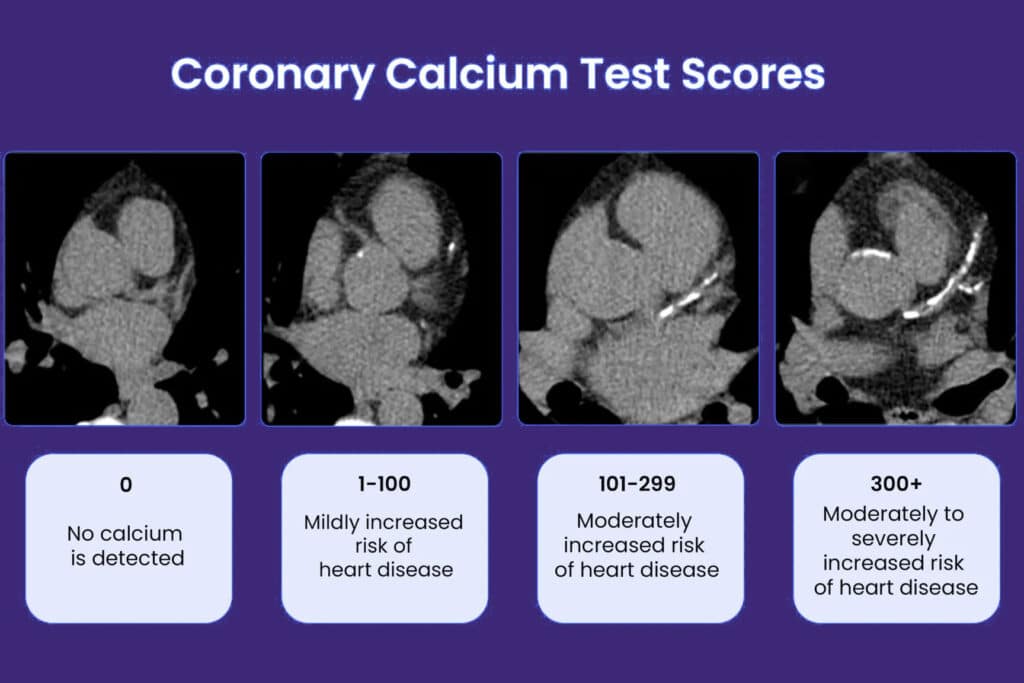
Exploring the Critical Link: High Postprandial Glucose and Calcium Scoring in Heart Health
Unveiling the unexpected connection between after-meal blood sugar levels and the health of your heart’s arteries could be the key to preventing heart disease. Learn how monitoring your postprandial glucose could offer insights into coronary calcium scoring, a critical marker for heart health.
Understanding Postprandial Glucose
Postprandial glucose (PPG) is a test that measures your glucose levels an hour after you’ve eaten a meal, and again an hour later. A normal score is below 7.8 mmol/l (140 mg/dl), while a score of 11.1 mmol/l (200 mg/dl) or above indicates you have diabetes. It’s worth noting that these reference ranges aren’t set in stone, and there are advantages in positioning the targets lower when using PPG tests to diagnose prediabetes. However, in relation to risk factors for coronary calcification, these targets are a suitable benchmark.
PPG is one of several possible tests for diabetes. High PPG is a good marker not just for diabetes, but other metabolic disorders, such as obesity and cardiovascular disease, and oxidative stress (free radical damage), which influences the ageing process.
Insight into Calcium Scoring
Calcium scoring involves having a CT (computed tomography) scan that produces detailed images of your heart’s arteries. The scan detects calcium deposits or calcifications, which are an early indication that you’re developing coronary artery disease (CAD), the most common type of heart disease.
Calcium scoring is a fairly recent addition to the arsenal of tests used to diagnose heart disease, alongside cholesterol, blood pressure, and blood glucose measurements. If you’ve already got risk factors for cardiovascular disease, calcium scoring is an accurate way of assessing your condition and formulating an effective treatment plan. It can also determine whether your risk of heart disease is low – a score of zero, for instance, would mean your chances of having a heart attack in the next ten years were minimal.

Linking Postprandial Glucose to Calcium Scoring
The link between diabetes, calcium scoring, and cardiovascular disease is already well-established. For instance, a study looking at the links between diabetes and calcium scoring notes that people with type 2 diabetes who had a calcium score of 10 or over had a significant increase in their chances of experiencing cardiovascular events like heart attack and stroke, as well as a higher rate of premature death. But how does PPG fit into the equation?
A study in the Journal of International Medical Research that looked into risk factors for coronary calcification discovered that high postprandial glucose scores were associated with higher calcium scores, and therefore indicated an increased risk of heart disease. Many other pieces of research confirm these findings, such as a Chinese study that looked at the links between coronary artery atherosclerosis (where excess cholesterol and calcium build up in the arteries, making them narrower and restricting blood flow) and blood glucose in people with no symptoms of disease. They concluded that there was a verifiable link between high PPG scores and coronary artery disease. Numerous other research papers concur with these findings.
Dive deeper into understanding the silent threats that dwell within us. Read “Unmasking the Hidden Danger Inside Us: The Truth About Visceral Fat” to learn more about the impact of internal fat on your overall health and find strategies to combat it. Your heart’s health might depend on recognising and dealing with these hidden dangers.
How Does High Postprandial Glucose Influence Heart Calcification?
Some studies report a link between the development of vascular calcification and osteogenesis (bone formation), in that the two share some similarities. The researchers suggest that calcification in the blood vessels uses several of the same processes as osteogenesis, for example, the vascular smooth muscle cells (VSMCs) start to produce bone formation materials such as the bone morphogenetic protein BMP-2 and osteocalcin. It appears that high glucose levels might stimulate vascular calcification by triggering BMP-2 and increasing the accumulation of calcium in the cells. Another factor that can increase the susceptibility of blood vessels to calcification is the effect of high glucose on the glycocalyx – the gel-like lining of the endothelium inside your blood vessels. Excess glucose can damage cells in the glycocalyx, breaching the protective layer and leaving it vulnerable to calcification.
Unravelling the Link: What Does Postprandial Glucose Tell Us About Calcium Scoring?
We know that high calcium levels are a reliable indicator of heart disease and cardiovascular events, but what’s interesting is how it’s possible to use your PPG score as a long-range forecasting tool for heart disease. Say you had a high PPG score during a routine test for diabetes. Not only could you take steps to correct the insulin imbalance causing your high blood glucose, you could also lower your risk of developing atherosclerosis and heart disease. The other side to this is the advisability of having a PPG test if your calcium score is high, because high calcium points to an increased risk of diabetes.
PPG and calcium scoring complement each other and could make a worthwhile contribution to preventing and detecting some of the most serious and widespread health problems currently affecting the world.
Conclusion: Taking Charge of Your Heart Health
With the undeniable link between high postprandial glucose and an increased risk for heart disease through calcium scoring, it’s clear that understanding these factors can be a lifesaver. Managing your blood sugar levels not only aids in diabetes control but also plays a crucial role in preventing heart disease, taking proactive steps towards maintaining a healthy heart should be a priority.
Are you ready to take a significant step towards safeguarding your heart health? Our comprehensive consultations and personalised health screenings are the first steps towards understanding your risk and taking control of your future. Contact us or book your free consultation and begin your journey to a healthier heart today.
Stay Updated: Follow us on LinkedIn and Instagram for the latest updates and health tips.







